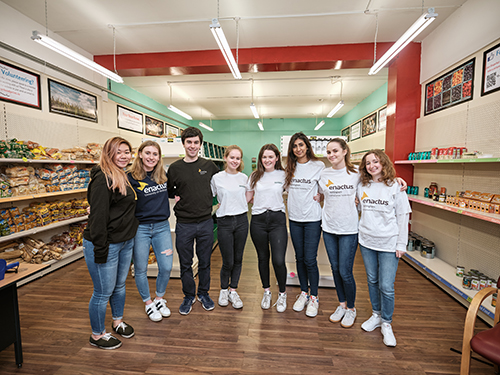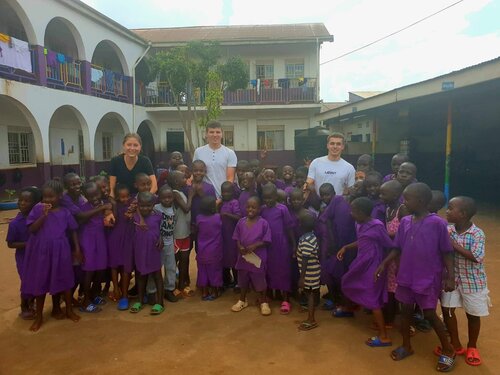Wednesday, 08 April 2020
On Monday 6 and Tuesday 7 April, 27 Enactus teams from across UK universities competed virtually in the 2020 Enactus UK National Expo. The University of Nottingham team came away in first place.
Enactus is a worldwide platform dedicated to creating a better world while developing the next generation of entrepreneurial leaders and social innovators. The global Enactus network consists of businesses, academics and student leaders, unified by their vision of creating a better, more sustainable world.
Enactus UK operates in 60 universities and has more than 2,600 active students.
The 2020 Enactus UK National Expo saw over 1,000 students, academics and senior business leaders come together virtually in celebration of the best in Youth Social Action and Enterprise.
The competition consisted of Enactus teams showcasing their social and community projects to business executives who served as judges. Student teams were evaluated on how successfully they demonstrated entrepreneurial leadership to drive sustainable positive impact to benefit people and the planet.
Enactus Nottingham won the competition after showcasing two of their social enterprises; Foodprint and Nutrigreens.
Enactus Nottingham will go on to represent Enactus UK in the 2020 Enactus World Cup in Utrecht, Netherlands from the 8-10 September. It will be the seventh time Enactus Nottingham has won the UK Finals.
On behalf of everyone at the University of Nottingham, the Student Comms Office would like to extend a huge congratulations to Enactus Nottingham.

Foodprint
Foodprint is a social supermarket based in Sneinton, Nottingham. The supermarket tackles food poverty and food waste in the local area by selling surplus foods 60% cheaper than other supermarkets, and redistributing free food to local charities and school breakfast clubs.

Nutrigreens
Nutrigreens is a project based in Uganda, and uses the power of innovation to combat malnutrition in Ugandan school children. The team used entrepreneurial leadership to design a vertical farming system and taught local farmers how to grow microgreens sustainably.